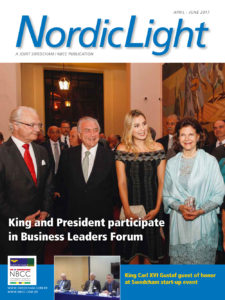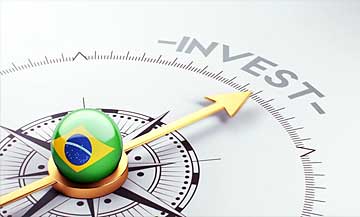 Brazil has been hit by a series of setbacks and crises in the last five years. Falling commodities prices, a sharp rise in the dollar and internal political turmoil have driven a wedge in Brazil’s once blistering growth.
Brazil has been hit by a series of setbacks and crises in the last five years. Falling commodities prices, a sharp rise in the dollar and internal political turmoil have driven a wedge in Brazil’s once blistering growth.
Operation “Lava-Jato”, or Car Wash, has taken Brazil by storm. Leading business and political figures, once deemed untouchable, have been arrested and Brazil is sitting out one of the most severe recessions in living memory.
These factors might lead investors to take a bearish approach towards Brazil. Nevertheless, a well-advised player could take great advantage of this situation.
This drop of economic activity has driven down the price of assets to the lowest levels in the better part of the last decade.
At the height of its latest growth cycle, Brazilian assets were among the most expensive in the world. Now the story is different, as many projects and assets are being sold with aggressive discounts.
Firms tied up in Car Wash struggle for liquidity, and their tarnished reputations have locked them out of global debt markets.
Raging interest rates, which are forecast to end the year in the double digits, also
provide investors from abroad with returns unseen elsewhere.
Additionally, Car Wash has also created a beneficial investment environment for foreign investors in two ways.
Car Wash has dismantled the existing corruption schemes in Brazil, and all new public tenders must be conducted lawfully, as there is no bribery structure set in place to replace the one that has been removed, insuring that the bidding procedures will be won by the parties with the best financial proposal and lowering compliance risks in regards to anti-bribery legislation.
This has been a flagship legal development in sending the message that business in Brazil must be conducted per the Rule of Law, and raising the level of the reputation of Brazilian institutions.
These factors will lay the foundation for a new cycle of growth and the expansion of market-driven economic activity.
Economists expect that Brazil’s economy will start to see growth in the last quarters of 2017 and onwards (a slight hiccup in the 3rd and 4th quarters of 2018 is expected due to the Presidential election).
The current administration has been conducting the sale of public assets and hiring new projects and the market’s response has been very positive thus far.
International players with many decades of experience in Brazil have been on a shopping spree in the last year, as they understand that the country will quickly recover and grow beyond where it left off at the beginning of this unfortunate cycle of economic apocalypse.
Brazilian conglomerates that usually take the lion’s share of the most attractive projects are all but completely out of the playing field, as they are too busy cleaning up their own houses to fathom entering new ventures.
These factors combined have created a perfect storm for business and investors with mid and long term investment policies will find that there is no better year than 2017 to invest in Brazil.
Rui Cavendish was an associate at Pacheco Neto Sanden Teisseire Law Firm.



